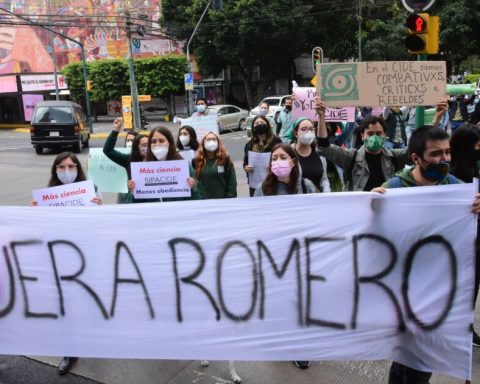Legislative strategies
Bárcena explains that the lack of 86 senators “can be managed in another way.”
One of them, with the absence of one or more senators who are not members of the ruling party, to lower the necessary threshold.
It could also be possible if “what is called a quorum is applied, which is to be present, but not to be present at the time of the vote,” notes the specialist, and that also reduces the number of votes needed.
So a senator can take a roll call and then go out to smoke, go to the bathroom or answer a phone call so as not to be present for the vote. That will lower the figure to two-thirds of senators present.
Another possible measure is to remove another opposition senator and convince him to join the ranks of Morena. This has already happened with the adhesion of senators Sabino Herrera Dagdug, from Tabasco, and Araceli Saucedo, from Michoacán.
For Bárcena, these strategies or possibilities for modifying the qualified majority numbers do not imply that there is a design error in the rules of Congress.
“The rules are clear and I don’t think they can be questioned. Rather, it is simply a matter of playing within the limits, because they are not going beyond them,” so these are valid legislative strategies.
Have there been any constitutional reforms without a qualified majority?
In the 64th Legislature and the recently concluded 65th, Morena and its allies had 71 senators, meaning they did not have a qualified majority.
At the beginning, at the end of 2018 and 2019, Morena reached an agreement with the opposition on constitutional reforms, such as the one that created the National Guard. Thus, on February 21, 2019, by a unanimous vote of 127 – only Senator Blanca Estela Piña was missing – the Senate of the Republic approved changes to the Constitution.
But the situation became more complicated after the state elections and the political “persecution” that, according to the opposition, was launched against him.
On June 9, 2022, the leaders of Va por México—the National Action Party (PAN), the Institutional Revolutionary Party (PRI), and the Democratic Revolution Party (PRD)—announced a “constitutional moratorium” to not approve any such reforms during the remainder of the Legislature, in 2024.
However, as the months went by, the political situation changed again, and the PRI agreed to reform the fifth transitory article of the constitutional decree on the GN to extend, until 2028, the permanence of the Armed Forces in public security tasks, through the National Guard.
So on October 4, 2022, when the bill from the Chamber of Deputies was put to a vote in the Senate, Morena barely gathered a qualified majority, with two extra votes.
The reform was approved with 87 votes in favor and 40 against. That is, there were 127 senators present at the time of the vote, so the “magic” number required to achieve a qualified majority of those present was “only” 85 votes.
There was uncertainty about the number of attendees and whether the necessary votes would be reached. But in the end Morena obtained nine votes from the PRI and two from the PRD for the amendment to pass. Three PRI senators voted against it.
So Morena had to rely on opponents to get the vote.
Today, with 85 senators on its own, the “Fourth Transformation” is missing one vote, but it is not essential for constitutional changes to prosper, if it ensures that its 85 deputies are present, but not all 128 are present and one is absent, or preferably more legislators from opposition benches.
















